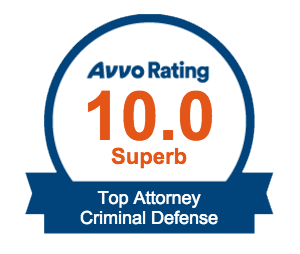After a conviction of driving under the influence in California, the penalties you will face will depend on several factors. The facts of the case, including the presence of aggravating and mitigating factors, will determine the penalties you receive. The court will also consider your DUI record when sentencing you for driving under the influence. Often, repeat DUI offenders face harsher penalties than a first time DUI offender. Your DUI sentencing in California also depends on whether another person suffered injuries due to you driving under the influence. Depending on the facts of your case, the prosecutor may charge you with a misdemeanor or felony DUI. If you are facing DUI charges, The DUI Defense Attorney can help you come up with a defense strategy.
DUI Sentencing
If you commit a first misdemeanor DUI offense in California, your sentence may include serving informal probation, also known as summary probation. The probation period may range between three years and five years, depending on the discretion of the court. While you are on probation, you may be subject to several conditions of probation. For instance, the court may require you to stay away from alcohol. To ensure that you adhere to this requirement, you may be subject to random alcohol testing without your knowledge. You may also have to perform community service while on probation.
You may be subject to jail time in a California county jail for six months. Courts often impose fines for DUI offenses in California. The penalties range between $390 and $1,000. The other sentencing for a first time DUI offense in California is the attendance of a court-approved drug or alcohol education program. The length of the program is between three months and nine months.
DUI offenses in California often lead to suspension of your driver's license. To be able to continue operating your vehicle upon committing a DUI offense, you would have to install an ignition interlock device. If you agree to install an ignition interlock device, you can continue to operate your vehicle without any restrictions. On the other hand, you may apply for a restricted driver's license. With a restricted license, you do not have the freedom to drive to any place you like. Instead, you may drive to a few designated locations, including the place of work or school.
After an arrest for operating a vehicle while intoxicated in California, you will have up to ten days to request a hearing from the Department of Motor Vehicles. During the hearing, you will present facts as to why the Department of Motor Vehicles should not suspend your driver's license. Requesting for the hearing postpones the suspension of your driver's license until the court resolves your case. You do not have to attend the DUI hearing in person. Your DUI attorney may request a DMV hearing and attend the hearing on your behalf.
If you lose during the hearing, the DMV goes ahead and suspend your driver's license. If you win during the DMV hearing, the DMV will not suspend your license. However, even if you win during the DMV hearing, the court may still suspend your driver's license after a DUI conviction.
Committing a Second DUI Offense in California
When you commit a DUI offense in California, the details of the crime will remain on your record for ten years. If you commit a second or subsequent DUI offense within ten years from the first offense, you will become a repeat DUI offender, and this attracts a harsher DUI sentencing. When you commit a second misdemeanor DUI offense in California, the applicable sentencing includes serving summary probation. The summary probation may range from three years to five years, depending on the circumstances of your case. You will also be subject to mandatory jail time. You have to serve a minimum of 96 hours in county jail and a maximum of one year.
The court may impose hefty penalties upon committing a second DUI offense. The penalties range between $390 and $1,000. You have to attend and complete a court-approved DUI program, which may run for 18 months or 30 months. Upon suspension of your driver's license, you may apply for a restricted driver's license that will allow you to drive to selected places. You may also install an ignition interlock device. After installing an IID in your vehicle, you will be free to drive to any place you desire.
Committing a Third DUI Offense in California
When you commit a third Dui offense in California, you will face harsher penalties than for a first-time and second-time DUI offense. The minimum jail time for a third-time DUI offense is 120 days, and the maximum jail time in county jail is one year. The applicable fines are similar to the penalties for a first-time and second-time DUI offense and range between $390 and $1,000. You also have to complete a court-approved DUI program. The period of the program for a third DUI offense is 30 months.
For a third driving under the influence offense, you are subject to compulsory IID installation for a minimum period of two years. If you agree to install the ignition interlock device, you will be free to drive to any place you desire. However, if you are not willing to install the IID, the Department of Motor Vehicles will suspend your driver's license for up to three years. You may have the license suspension converted to a restricted license upon serving a minimum of 18 months of the suspension.
After committing a drunk driving offense for the third time, the California Department of Motor Vehicles may label you a habitual traffic offender.
Drunk Driving Causing Injury
While operating a vehicle while intoxicated, you may cause an accident that leads to the injury of another person. Under California law, the prosecutor may charge drunk driving with injury as a misdemeanor or felony. Your criminal history and the facts and circumstances of your case will determine whether the prosecutor charges the case as a felony or misdemeanor.
If you commit a misdemeanor drunk driving offense, the sentencing includes serving misdemeanor probation for three years to five years. The court may sentence you to jail time ranging from five years to one year in a California county jail. The applicable fines for DUI with injury range between $390 and $5,000. Other penalties include attending an alcohol program for three months, 18 months, or thirty months.
To be able to continue driving your vehicle in California, you are subject to a compulsory installation of an IID. If you are not willing to install an ignition interlock device, you may be subject to suspension of your driver's license for one year. You also have to pay restitution to the victim. Paying restitution entails reimbursing the victim for all the losses that the victim may incur due to the accident and injuries resulting from your drunk driving.
For felony drunk driving with injury, the court may subject to a longer imprisonment period in a California state prison. You may also be subject to sentencing enhancement comprising an additional and consecutive one to six years to the standard prison term. The sentence enhancement will depend on the number of victims who suffer injuries during the accident. The sentence enhancement will also depend on the extent of injuries that the victims suffer.
In accordance with the California Three Strikes Law, you may get a strike on your criminal record if you commit a DUI offense with an injury. The applicable fines for drunk driving with injury are higher and range between $1,015 and $5,000. The court may require you to attend a drug and alcohol training program. The length of the program may range between 18 months and 30 months.
When you commit a third drunk driving offense in California, the Department of Motor Vehicles may label you a habitual traffic offender (HTO). Getting a label of a habitual traffic offender may affect many areas of your life. For instance, you may not be able to secure employment because most employers conduct a background check on potential employees. You may also not be able to get many forms of licensing in the state of California.
For a third drunk driving offense in California, the sentencing may include the compulsory installation of an ignition interlock device (IID). If you agree to install an ignition interlock device, you will be free to continue driving anywhere. However, if you are not willing to install an ignition interlock device, you will be subject to license suspension. You also have to pay restitution to the victims.
Felony DUI in California
Generally, a crime of driving while intoxicated in California is a misdemeanor offense. However, the offense may qualify as a felony after four instances. If you commit the fourth DUI offense within ten years, you will get felony charges. If you commit a DUI offense and cause an accident, which leads to serious bodily injury, you may face felony charges. You may also get felony DUI charges for drunk driving, causing an accident, which leads to the death of another person. If you have a prior DUI felony conviction and you commit an additional offense, you may automatically face felony drunk driving charges.
It is important to note that offenses like wet reckless qualify as priorable offenses when considering the number of DUI offenses. It is also important to note that expunged DUI offenses will count as priorable offenses as well. Even if the court has expunged a DUI offense from your criminal record, the offense will still count as a priorable offense. If you commit four DUI offenses within ten years, you will get felony charges.
The sentencing for felony DUI in California is harsh and may include imprisonment in a California state prison. The imprisonment period may vary; the typical imprisonment period is sixteen months, two years, or three years. Just like with other DUI offenses, the applicable fines range between $390 and $1,000. You may get a license suspension for up to four years. To avoid suspension of your driver's license, you have to install an ignition interlock device for a minimum of one year. The California Department of Motor Vehicles may label you a habitual traffic offender.
If your felony DUI results in great bodily injury or death, the sentence may include life imprisonment. Pursuant to the California Three Strikes Law, you may get a strike on your criminal record.
Forms of Alternative Sentencing in California
Instead of serving time in a county jail or a California state prison, the court may recommend alternative sentencing. Some of the available sentencing alternatives in California include performing community service. You may also be subject to Cal-Trans roadside work. The court may impose house arrest or electronic monitoring. While you are on electronic monitoring, the court will know every time you take alcohol, and also when you leave the designated area. You may also have to enroll for residency in a sober living environment. Other forms of alternative sentencing available include incarceration in a city or private jail in California.
It is important to work with an experienced DUI attorney. An experienced attorney will be aware of the various alternative sentencing options that he/she may take advantage of. The attorney will also know how to persuade the prosecutor or the judge to accept the alternative sentencing options. By working with an experienced DUI attorney, you can be able to avoid the harsh consequences of a California DUI conviction.
Probation Sentencing in California and the Conditions of Probation
When the court imposes probation, the court will require you to honor various requirements of conditions of probation. If you fail to honor the necessary conditions of probation, the court may revoke the probation. Upon revoking your probation, the court may recommend jail time for the remaining period of probation. It is important to adhere to all the set requirements of probation. Some of the requirements for probation include:
Staying away from alcohol while you are on probation, you should not operate your vehicle with any measurable amount of alcohol in your blood. You may be subject to random drug and alcohol testing, even when you least expect it.
You must also submit to DUI testing, including blood tests, breath tests, and, in some rare cases, urine tests. You should not commit additional crimes while you are probation.
The court may also impose additional conditions of probation, depending on the circumstances of your case. For instance, the court may require attending AA (Alcohol Anonymous) and NA (Narcotics Anonymous) meetings. In some cases, you may have to take part in the Mothers against Drunk Driving (MADD) victim impact program.
Restitution of the victim is also a common condition of probation. This entails reimbursing the victim for the losses the victim may have incurred due to your negligence and drunk driving.
Mitigating and Aggravating Factors in DUI Sentencing
The presence of mitigating factors may lead to a reduction of your DUI sentencing. On the other hand, the presence of aggravating factors may lead to an enhancement of your DUI sentencing. Mitigating factors may include lack of previous DUI offenses on your record. Having a good driving record may also serve as a mitigating factor in a DUI case. Your attorney utilizes the mitigating factors to negotiate for the reduction or dismissal of your DUI charges.
Aggravating factors will enhance your DUI sentencing. The presence of aggravating factors will make you face harsher penalties than you would face if the aggravating factors are not present. Some of the aggravating factors in DUI cases include:
Operating a vehicle with very high BAC levels-This will prompt the court to impose a harsher penalty. The allowable BAC level in California is .08%. If your blood alcohol concentration exceeds this limit, you are under the influence. If you record a BAC of .15% or .20%, you will face enhanced penalties for the extreme levels of intoxication.
You will also face enhanced charges if you refuse to submit to a DUI testing. Refusing to submit to a DUI chemical test leads to an automatic suspension of your driver's license.
If you operate a vehicle while intoxicated and cause an accident, you will get enhanced charges. You will particularly get a sentence enhancement if the accident leads to the injury or death of another person.
You should not operate your vehicle at excessive speeds while under the influence of alcohol if you engage in reckless driving behavior while intoxicated is an aggravating factor in California DUI cases.
Other aggravating factors that may lead to enhanced sentencing include driving with a child under the age of 14 years while intoxicated. In addition to getting enhanced charges for DUI with a minor, you may also face additional charges under California child endangerment law outlined under Penal Code 273a.
Underage DUI is also an aggravating factor that may lead to sentence enhancement. You may face enhanced penalties for committing a DUI offense while you are less than 21 years of age.
Find a Los Angeles DUI Attorney Near Me
DUI offenses attract varying sentencing depending on the circumstances of your case and your DUI record. The sentencing for DUI may be severe, especially if aggravating factors are present. Upon an arrest for DUI, it is important to seek the assistance of a DUI attorney. The attorney can weigh the facts of your case and advise you on the way forward. Contact The DUI Defense Attorney at 818-253-1913 and speak to one of our attorneys.













